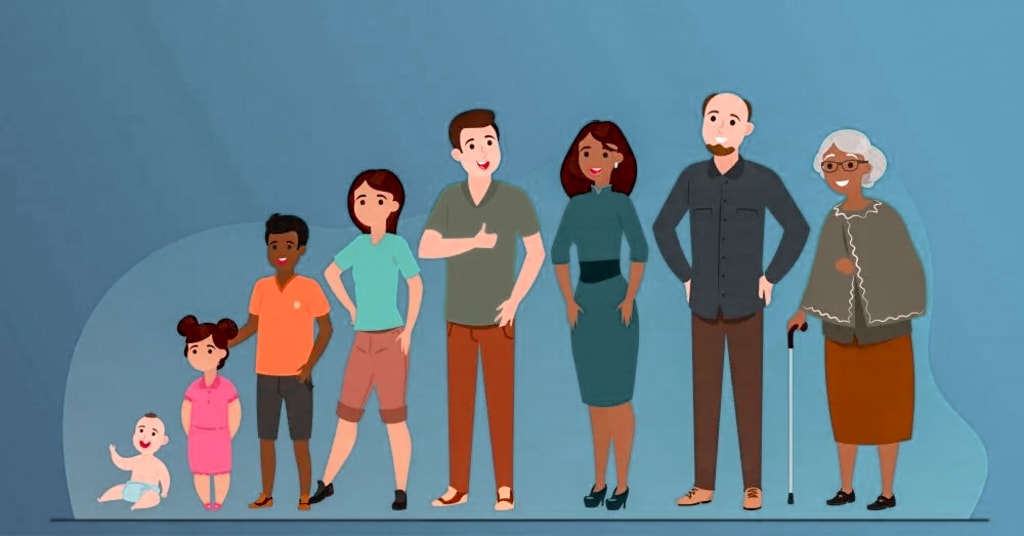Unlocking the Stages of Human Development: Navigating the Journey from Infancy to Adulthood
Human development is a complex and dynamic process that encompasses physical, cognitive, emotional, and social growth from infancy through adulthood. From the moment of conception to the twilight years of life, individuals undergo profound changes and transitions that shape who they are and who they become. In this article, we'll explore the stages of human development, shedding light on their significance and practical implications.

1. The Miracle of Life: Prenatal Development
The journey of human development begins even before birth, with the miraculous process of prenatal development. From the moment of conception, a single fertilized egg begins to divide and multiply, eventually forming a complex organism with distinct characteristics and features. Over the course of nine months, the developing fetus undergoes rapid growth and differentiation, culminating in the momentous event of birth.
2. The Formative Years: Early Childhood Development
Early childhood is a critical period of development characterized by rapid growth and learning. During this time, children acquire fundamental skills and abilities that lay the foundation for future learning and development. They learn to walk, talk, and interact with the world around them, forming attachments to caregivers and exploring their environment with curiosity and wonder.
3. Navigating the School Years: Middle Childhood Development
As children enter the school years, they experience significant cognitive, social, and emotional development. They begin to acquire academic skills and knowledge, develop friendships and peer relationships, and gain a sense of independence and autonomy. Middle childhood is a time of exploration and discovery, as children navigate the challenges and opportunities of school and social life.
4. The Teenage Transition: Adolescence and Puberty
Adolescence marks a period of profound change and transition, as individuals navigate the physical, cognitive, and emotional challenges of puberty and adolescence. Hormonal changes trigger rapid physical growth and development, accompanied by changes in mood, behavior, and identity. Adolescents grapple with questions of identity, autonomy, and peer relationships as they transition from childhood to adulthood.
5. Emerging Adulthood: Navigating the Path to Independence
Emerging adulthood is a relatively new stage of development characterized by exploration, identity formation, and transition to adulthood. It is a time of opportunity and uncertainty, as young adults pursue education, career, and relationships while navigating the challenges of independence and responsibility. Emerging adults may experience a period of exploration and self-discovery as they transition from adolescence to adulthood.
6. Adulthood and Aging: Continuity and Change
Adulthood encompasses a broad range of experiences and transitions, from establishing careers and families to facing the challenges of aging and retirement. Adults continue to grow and develop throughout their lives, adapting to changing circumstances and roles. As individuals age, they may experience physical, cognitive, and emotional changes that impact their quality of life and well-being.
7. The Wisdom of Age: Late Adulthood and Beyond
Late adulthood is a stage of life characterized by reflection, wisdom, and the culmination of a lifetime of experiences. Older adults may face challenges such as declining health, loss of independence, and bereavement, but they also possess a wealth of knowledge and wisdom gained through years of living. Late adulthood is a time of reflection, legacy-building, and cherishing the relationships and memories that enrich life's journey.
Conclusion: Embracing the Journey of Human Development
In conclusion, human development is not just a linear progression from infancy to adulthood; it's a rich tapestry of experiences, challenges, and triumphs that shape who we are as individuals and as a society. Each stage of development brings its own unique joys and struggles, from the wonder of discovering the world as a child to the wisdom and reflection of late adulthood.
Understanding human development is essential for parents, educators, healthcare professionals, policymakers, and individuals alike. It informs how we nurture and support the next generation, how we design educational and healthcare systems, and how we create communities and societies that foster growth and well-being for people of all ages.
As we navigate the journey of human development, it's important to recognize the diversity of human experience and the resilience of the human spirit. Each person's path is unique, shaped by a myriad of factors including genetics, environment, culture, and individual choices. By embracing the complexities of human development and honoring the dignity and worth of every individual, we can create a more compassionate and inclusive world where everyone has the opportunity to thrive and fulfill their potential.
So let us celebrate the miracle of human development, with all its twists and turns, challenges and triumphs. Let us cherish the moments of growth and transformation, and let us support each other with empathy, understanding, and love as we journey through the stages of life together.
About the Creator
Mohamed Ali
Mohamed Ali is a passionate writer and researcher with a keen interest in exploring the complexities of human behavior and society through the lens of sociology. With a background in sociology and psychology.






Comments
There are no comments for this story
Be the first to respond and start the conversation.